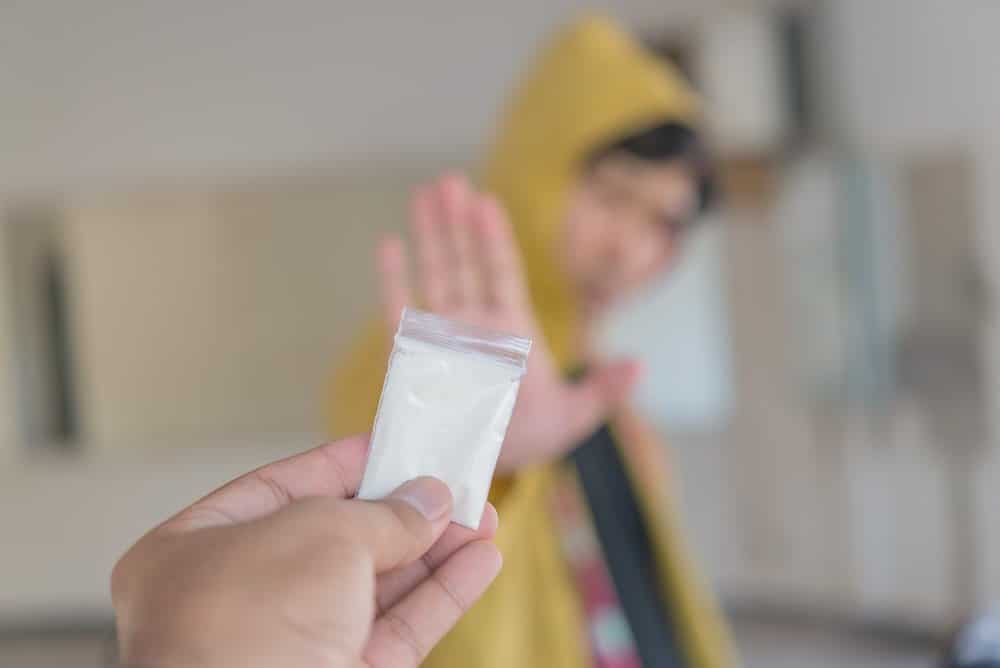We all know that cocaine is a stimulant drug and that using it can lead to addiction. But few people truly understand how easy it is to get addicted to cocaine, or how difficult it can be to quit.
Cocaine addiction can develop after only a few uses, and around 15% of the people in the U.S. have tried the drug. That means that millions of people are at risk for cocaine addiction.
If you or someone you love is suffering from cocaine abuse, you need to know what to do. In this article, we will tell you why cocaine addiction and abuse is so bad for you, and discuss cocaine treatment options.
Cocaine Addiction Risks
Being addicted to cocaine can cause many problems in your life. If you want to quit using cocaine, a good place to start is to educate yourself on the various ways that this drug can cause you harm.
Being addicted to cocaine has many negative mental and physical effects in the short-term. One of the tell-tale signs that a person’s cocaine use has gotten out of hand is when some of these effects show up, but they keep using the drug anyways.
Short-term mental effects of cocaine abuse include:
- Paranoia
- Aggression
- Depression
- Anxiety
- Panic
- Hallucinations
- Irritability
- Impaired judgment
Short-term physical effects of cocaine abuse include:
- Faster heart rate
- Unhealthy weight loss
- Chest pain
- Irregular heartbeat
- Heart attack
- Seizure
- Stroke
- Headaches
- Nausea
- Stomach pain
As if these effects weren’t enough, being addicted to cocaine can also lead to serious medical conditions, including:
- Respiratory illnesses
- Immune system issues
- Hepatitis
- Gangrene
By using cocaine, you are putting yourself at risk for all of the unpleasant and dangerous effects listed above. In addition, the effects of abusing cocaine are likely to lead to all sorts of social and financial problems in your life. Many addicts lose friends and family, as well as their jobs, due to their drug abuse.
Cocaine Withdrawal
If you’re going to quit using cocaine, one of the most important things to know about is withdrawal. Withdrawal symptoms will arise when someone who has been using cocaine stops taking it or suddenly takes much less.
There are three main phases of withdrawal for cocaine users, but we usually only refer to the second phase as ‘withdrawal’. They are:
- Phase one: the ‘crash’. This is the first period after you stop using cocaine. You will experience irritability, anxiety, exhaustion, and an increased appetite. This phase lasts for a number of hours.
- Phase two: ‘withdrawal’. This period can last for up to 10 weeks after you stop taking cocaine. It will include strong cravings for cocaine, irritability, and tiredness. You may also have large mood swings, and trouble sleeping. Withdrawal symptoms make it very hard to stay sober. Your drug cravings, combined with other unpleasant feelings are likely to make you want to relapse.
- Phase three: ‘post-acute withdrawal syndrome’ (PAWS). Some users find that their cravings persist for much longer than withdrawal normally lasts. Sometimes, strong cravings for cocaine can last for several months after use stops. This is called post-acute withdrawal syndrome. It is important to have ample support set up for yourself in case you experience cravings for a long time.
Withdrawal can make it very difficult for addicts to stay sober on their own. Strong drug cravings are hard to resist without the proper support network. This is why when it comes to cocaine abuse, seeking help is so important.
Cocaine Treatment Options
Anyone serious about stopping their cocaine use needs to look into a professional treatment program. Although there are some steps you can take on your own, a treatment program is the only approved way of dealing with cocaine addiction.
Your treatment will start with detox, which means to go through withdrawal in a safe and controlled setting. Detox is a great way to start your recovery off on the right foot, as it helps you to clear your mind and body before beginning formal treatment.
Next, you will select either an inpatient or outpatient treatment program. A combination of doctors and addiction specialists will help you to choose a program that suits your needs. Whatever the program, the following elements are key parts of cocaine addiction treatment:
- Talk therapy. One-on-one therapy, especially techniques such as cognitive-behavioral therapy (CBT), can be very helpful in understanding your addiction and how you can change your thoughts and actions around cocaine use.
- Incentives. Incentive techniques have been shown to be very helpful in treating patients with cocaine addiction. You might be offered rewards or vouchers for sticking with your treatment and remaining sober. This kind of reward replaces the rewarding and pleasurable feelings that you may get when you are high on cocaine.
- Group meetings. Meeting with a support group like Cocaine Anonymous or Narcotics Anonymous might be helpful. These groups function based on the same 12-step model that Alcoholics Anonymous uses.
Cocaine treatment options such as inpatient and outpatient rehab have been shown to work well. Studies have shown that the majority of people who get treatment for cocaine abuse stop using the drug.
If you or a loved one is ready to put your cocaine abuse in the past, we can help. Our certified treatment center offers plans that fit your needs. No two patients are the same, and our treatment model values your unique differences. Call Northeast Addiction Treatment Center today to learn how we can help you discover a cocaine-free life.


